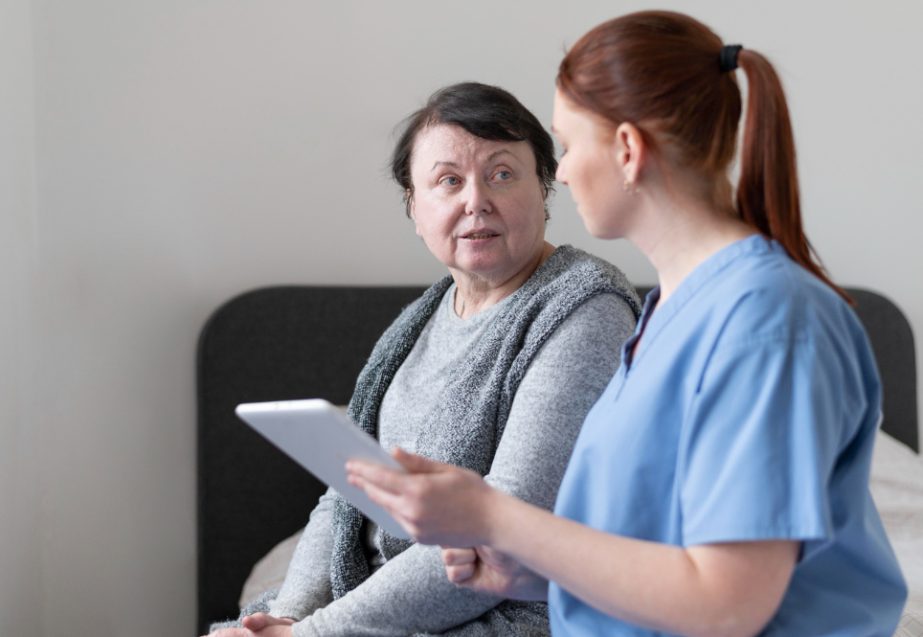
With the increase in nursing home abuse, it has become very important that you know how to report abuse in nursing homes.
Families place their loved ones in the trust of nursing homes expecting care, respect, and dignity. If that trust is broken through abuse or neglect, you can take action to protect those who cannot defend themselves.
However, to strengthen your case, you need to understand the signs of abuse: physical, emotional, or financial exploitation. You also need to follow the right steps in the pursuit of justice for the victims.
But what are the things that you can do? How can you report nursing home abuse in the right way?
Hi. In today’s blog, these are some of the things that I will be talking about. So, keep on reading this blog till the end, and thank me later!
Rise in Nursing Home Abuse
According to the latest data, the number of nursing home abuse cases has increased drastically in the United States.
For instance, the World Health Organization reports that 1 out of every six older adults in the entire world suffers from nursing home abuse. And that is not all.
As per the federal statistics, nursing home abuse cases have increased by nearly 84% between the years 2017 and 2021.
These are not just numbers for us. This is a sign of how the disturbing trend of nursing home abuse is on the rise.
But is there no way in which we can stop this? Yes, there is. The simplest answer to this is to know how to report abuse in nursing homes the right way.
How to Report Abuse in Nursing Homes?
Now that you know why people have been facing abuse in nursing homes, it is time for you to take steps.
Here are some of the things that you can do if you want to know how to report abuse in nursing homes:
Understand the Signs of Abuse
The first step to reporting abuse is recognition. Physical signs of abuse include bruising, burning, and sudden weight loss, and usually point to mistreatment.
Emotional abuse may be far more subtle but equally damaging. Be watchful if your loved one seems withdrawn or fearful, has mood changes, or is inordinately agitated around certain staff members.
Other common forms of abuse include financial exploitation. One would need to look out for sudden changes in bank accounts, missing personal items, or unauthorized transactions.
Document Evidence Thoroughly
After you have identified signs of potential abuse, begin collecting evidence that supports your suspicions.
“Photos of injuries, unsafe conditions, or unsanitary environments can be powerful pieces of evidence,” says attorney Michael Duffy of Duffy & Duffy, PLLC.
Ideally, document all conversations with employees, doctors, and anyone else involved, including dates, times, and quotes when possible. This information will ensure clarity and complete accuracy.
Medical reports, financial statements, and written correspondence carry a lot of weight with any claim. Keep these documents in a safe but accessible place for your use and convenience.
Contact Adult Protective Services (APS) or Local Authorities
With the gathered evidence, contact APS or your local law enforcement agency. Both can investigate abuse claims and take immediate steps to protect the victim.
When filing your case, state a summary of your concerns clearly, along with documented information like dates and incidents with supporting evidence. Authorities can then act quickly, having a complete understanding of what happened in such situations.
If you are not sure how to make the report, most states have hotlines for APS services. They walk you through it and keep your name confidential if needed, and they also make sure safety concerns about nursing home abuse are addressed.
Report Concerns to the Nursing Home Administrator
It is also important to speak directly with the administrator of the nursing home or a senior staff member. By law, they must respond to allegations of abuse and investigate any claims that are made.
The administrator must make an immediate response by starting an internal investigation into the matter. Be sure to ask for written confirmation that your call has been received and a record made.
Legal Representation
Finally, consult with an attorney specializing in elder abuse cases. The attorney will explain all the legal options and direct you on how to file claims or lawsuits, if any.
Legal professionals can also help in gathering more evidence, taking witness statements, and going through the state-specific regulations that concern nursing homes. They ensure that your case will be treated with the right amount of precision and urgency.
With the litigation process, most victims obtain compensation or entitlements to after-care services.
Sound legal representation increases the chances of holding abusers accountable while protecting your loved one for a longer period.
Who Can Help You With Nursing Home Abuse?
Now that you are aware of how to report abuse in nursing homes, it is time for you to know who can help you legally fight this.
Yes, there is hope. You can easily report and get compensation for the trauma and abuse you or your loved ones have faced.
You see, abuse, in general, can take a lot of forms. These can be emotional as well as physical. And yes, in case you did not know, a lot of people have also faced sexual abuse while at the nursing home.
If you want to fight this, the best thing to do is hire a nursing home abuse lawyer. They can help you by:
- Investigating the abuse.
- Filing a legal claim.
- Representing you in court.
If you have been thinking about reporting the abuse at a nursing home, it is best that you do not take much time. Do it as soon as possible so that you do not miss the deadline!
Read More:
- Why Lawyers Should Use a Free VPN to Stay Safe and Private
- Best Fort Lauderdale Personal Injury Lawyers You Must Know About!











0 Reply
No comments yet.